Consulting, Coaching, & Speaking Services
Jody is available to do on-site or remote coaching as well as large or small group presentations.
Below you will find sample workshops that can be customized to align with the school and district context in order to meet teacher and student needs. New workshops can also be developed.
Jody can also help you to design and implement larger systemic changes within your school or district as it connects to issues around equity, literacy, and social-emotional learning.
Testimonials
Deb Armfield Executive Director of Curriculum, Assessment & Professional Learning, Timberlane Regional School District
"Jody’s ability to work with adult learners in a professional setting is unparalleled. Her expertise in adolescent literacy is seconded only by her ability to motivate teachers in all content areas to become teachers of reading. Jody was instrumental in our district-level integration of content literacy in grades 6-12. Her strategies for engaging students in ways that made sense to teachers was extraordinary. Jody is a gifted and motivating professional educator."
Jordan Yarwood Citywide Assistant Principal of Literacy, Pathways to Graduation, New York City Department of Education
"Before Jody came to our school as a literacy consultant, we had no literacy program in place to support our striving young adult readers. Jody partnered with us — giving us all of her expertise, experience, and infectious energy as a staff developer and literacy coach — to nurture a culture of literacy among students, teachers, counselors, and administrators and lead us in developing a coordinated model of culturally responsive and sustaining literacy instruction to serve our students. She truly is an agent of transformational change."
Available Workshops
-

Building and Deepening Students’ Vocabulary Acquisition
Not having knowledge of key concepts and vocabulary words can impede our students’ reading comprehension and learning in our content area classrooms. This workshop will explore culturally responsive and sustaining theories, research, and frameworks behind meaningful and engaging vocabulary instruction, particularly for students with special needs and emergent bi- and multi-lingual language learners. Jody will offer several practical activities to ensure that students not only learn the words in our content areas—but develop strategies for using context as well—as we ultimately want our students to be independent critical thinkers and readers.
-
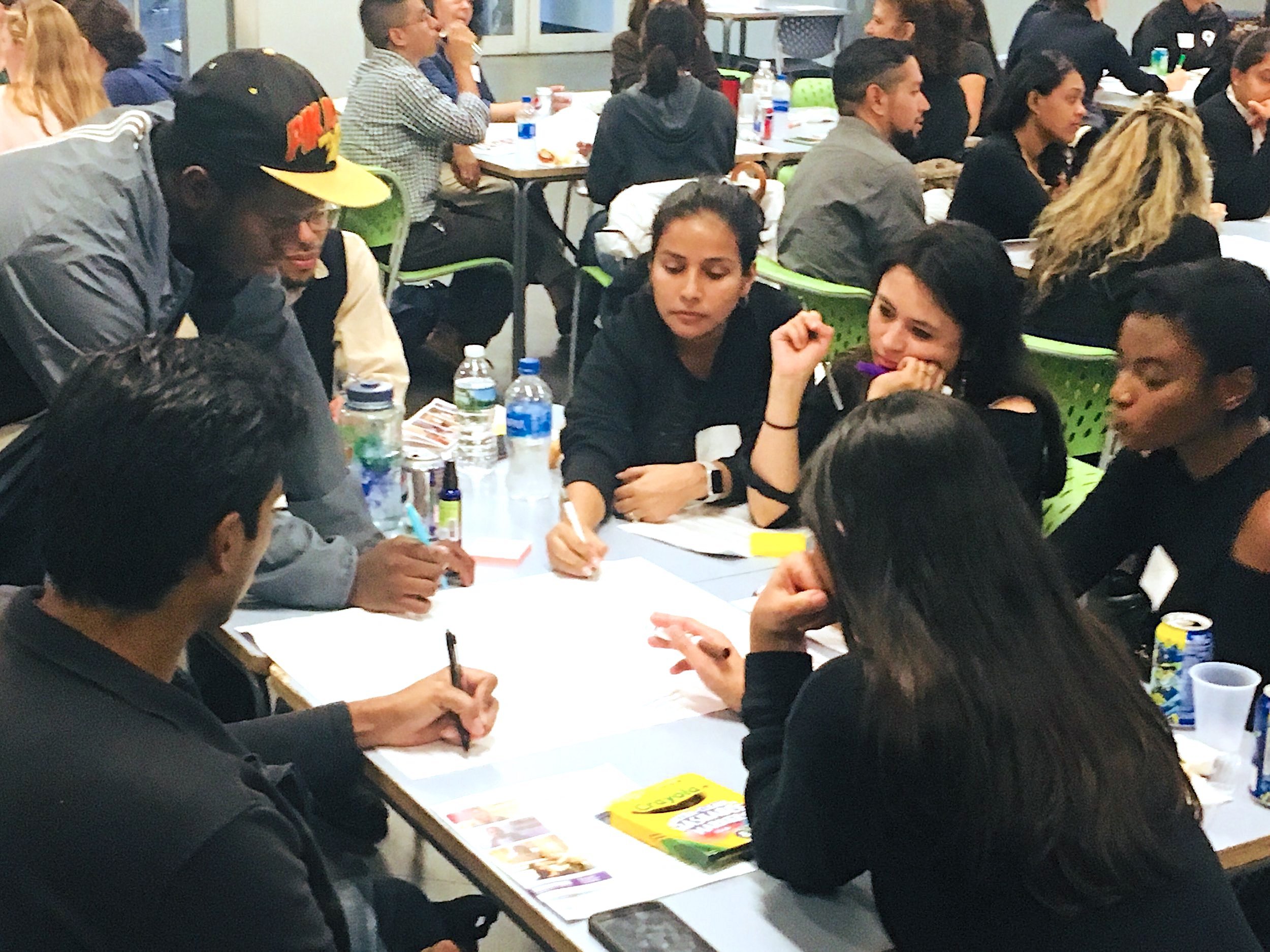
Enhancing Student-Led Discussions
Jody will provide several different kinds of discussion structures from think-pair-share to fishbowl to Socratic seminar. Activities will be provided to scaffold and differentiate these processes along with overviews of various formative and summative assessments.
-
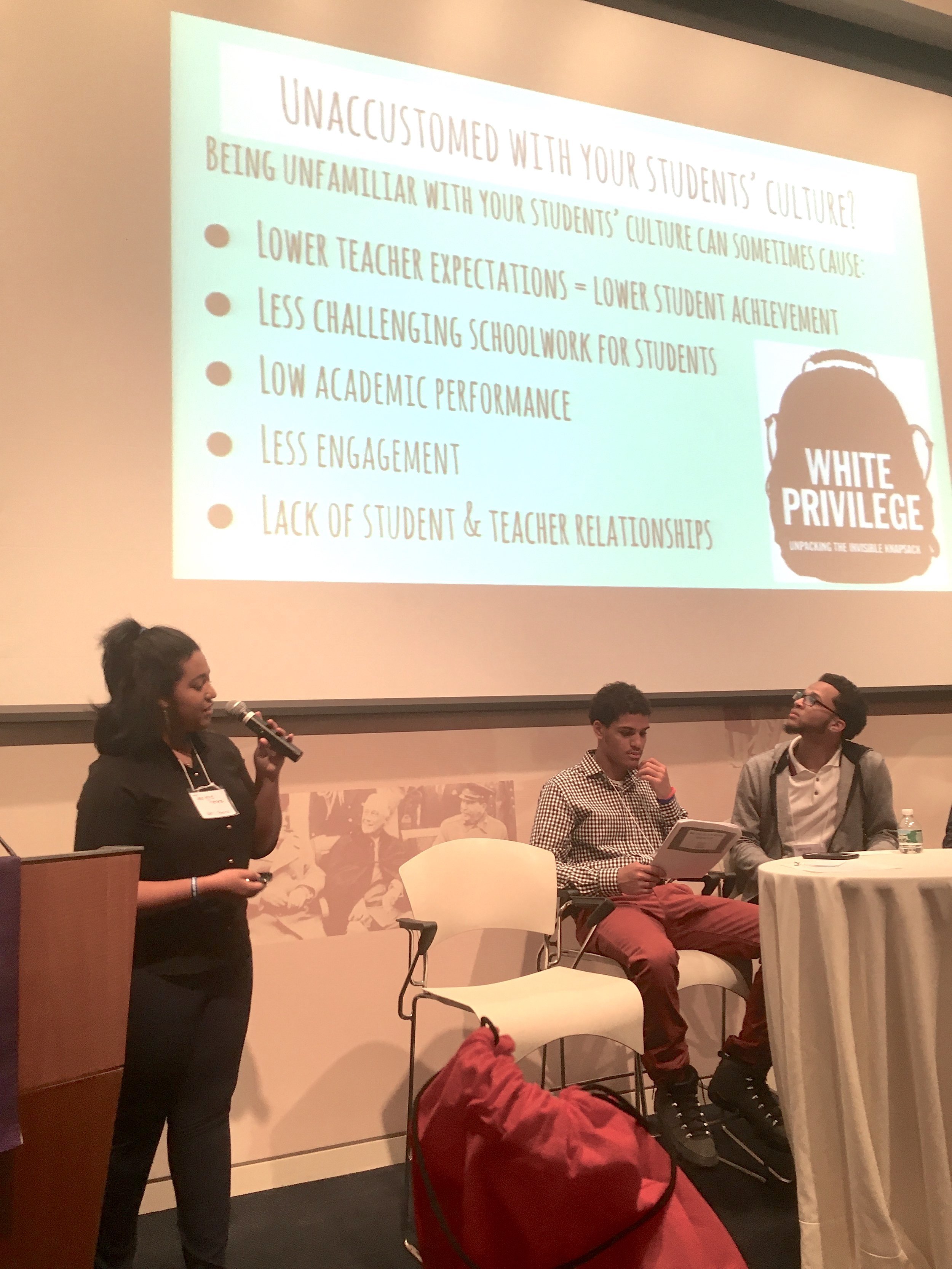
Culturally Responsive and Sustaining Instruction: Meeting the Diverse Needs of All of our Students
Because our classrooms are culturally, neurologically, and linguistically diverse, we as educators need to adjust our classroom content, instruction, and assessments so that they are more reflective our students, and more relevant to their identities and communities. This workshop will focus on research in culturally sustaining instruction and its impact on a wide variety of classrooms. We will then discuss several practical, hands-on instructional strategies that can be used so that we are meeting the needs of all of the students in our classroom.
-
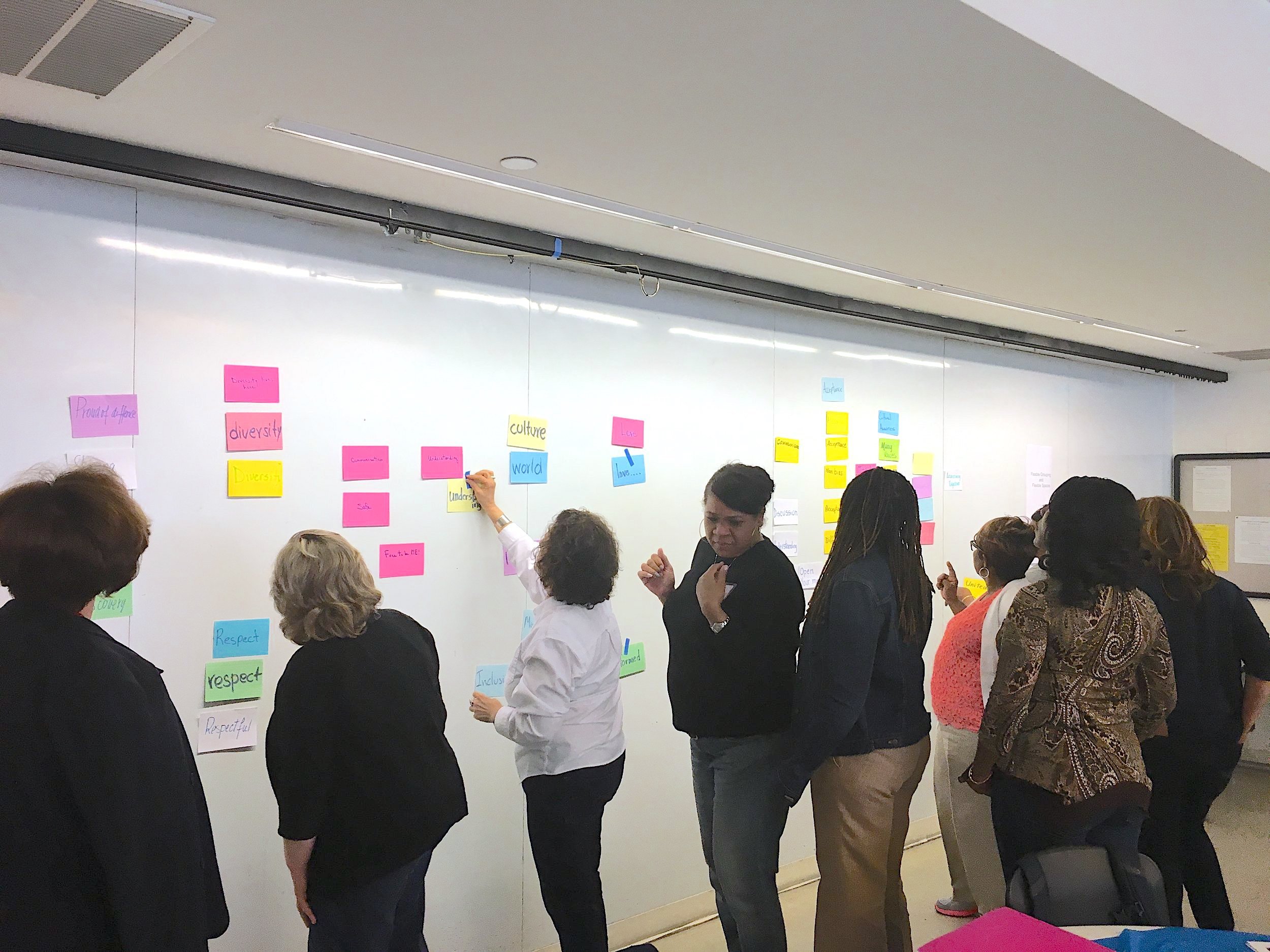
Designing School Spaces that Maximize Student Support and Empowerment
This workshop will help teachers and administrators to redesign their communal school spaces and classrooms so as to maximize support for students in literacy while also empowering them through highlighting their work and their voices. Several strategies will be covered from word walls to wall charts. Participants will also have time to create visual supports and redesign their own school spaces.
-
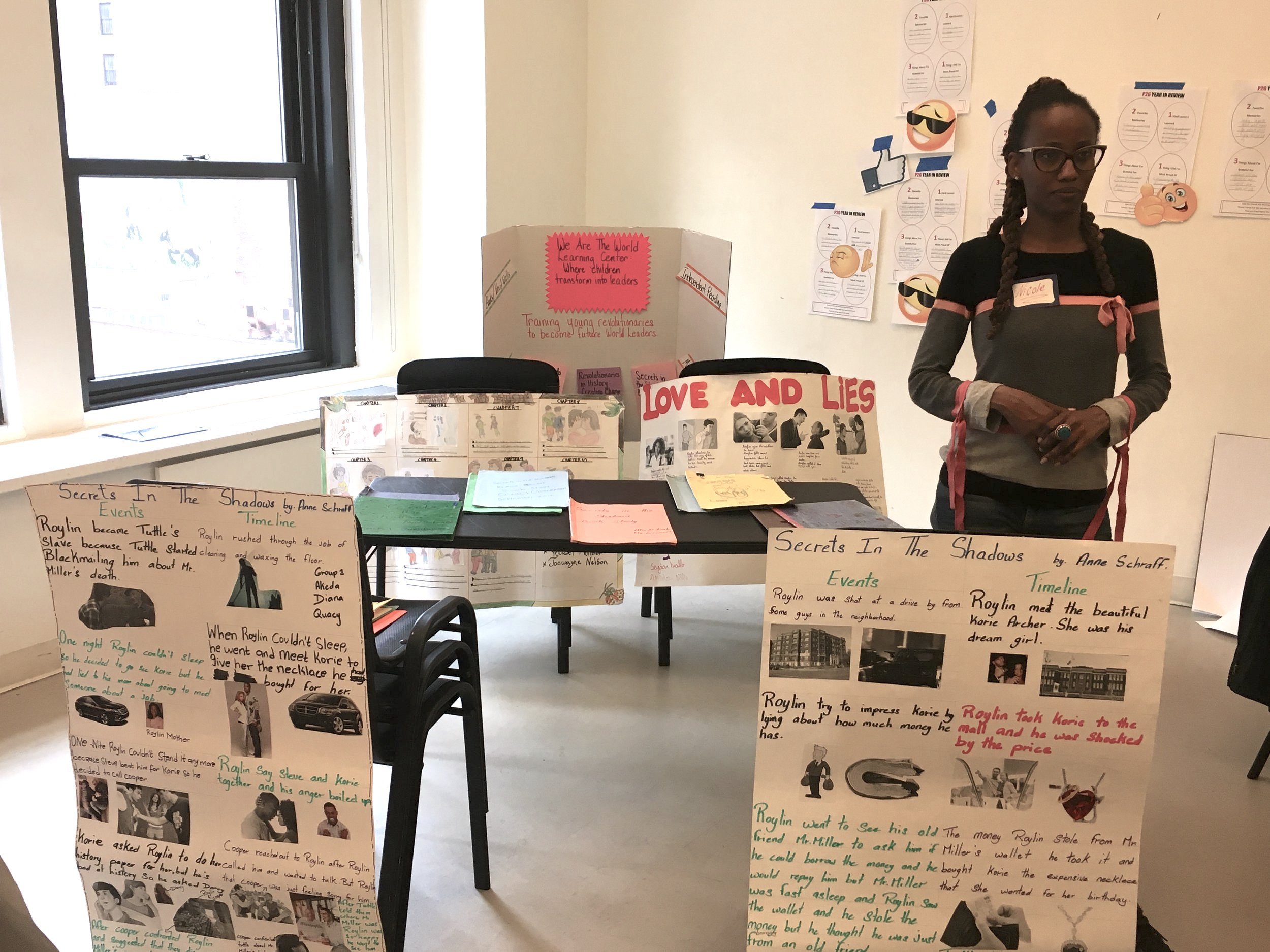
Differentiating Instruction for Every Classroom
Because we have classrooms filled with diverse students with varying abilities, it is necessary that we plan our lessons and assess our students in a variety of ways. This workshop will focus on several theories of differentiated instruction including the kinds of learners we have in our classrooms and the characteristics that create an effective learning community for every student. We will also talk about the multiple ways we can differentiate our classroom through students’ learning profiles, readiness, and interest levels. How we differentiate our instruction will also be explained through the lenses of content, process, and product.
-

Literature Circles and Book Clubs
Literature circles and book clubs are an interactive way to get students talking about books and a wide variety of genres and texts including fiction, poetry, and non-fiction. During this workshop, we will discuss the basics of starting and sustaining literature circles and book clubs both in and outside of our classroom spaces. We will also discuss assessment and evaluation of the book clubs processes and ways in which these spaces can be used for culturally-affirming social emotional learning.
-

Comprehensive Reading Instructional Approaches
This workshop will outline the components of comprehensive reading instruction, providing both a foundation for theory and research along with practical applications for the classroom. Teachers will understand the various approaches to reading including phonics, fluency, comprehension, vocabulary, and shared, guided and independent reading.
-
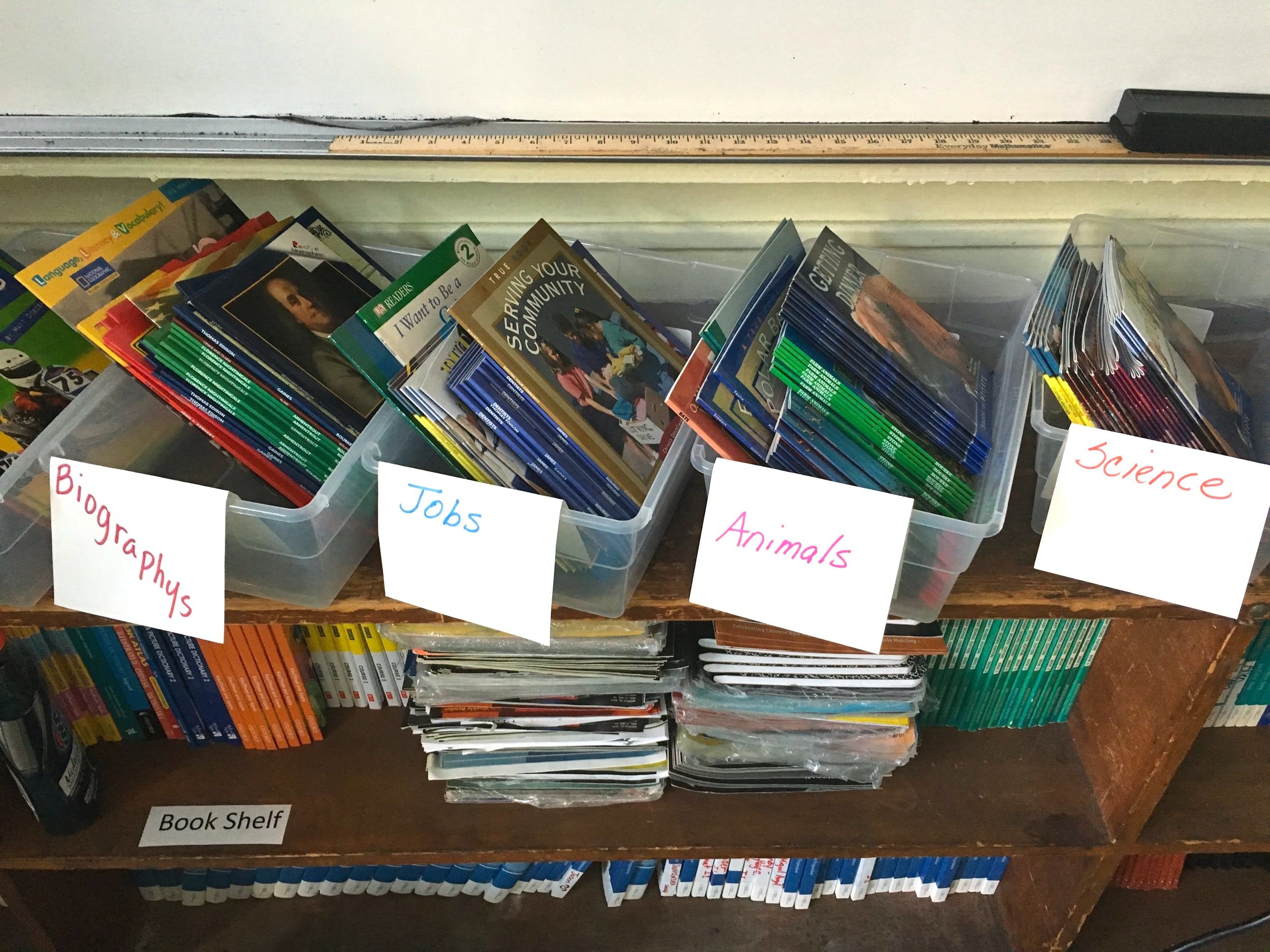
Reading Across the Content Areas
This workshop will look at ways to explicitly address the reading process in all content area classrooms. We will discuss essential reading strategies and how to teach and use them in the classroom, specifically with those tougher nonfiction texts. This will be accomplished through the lenses of the pre, during, and post reading structures.
-
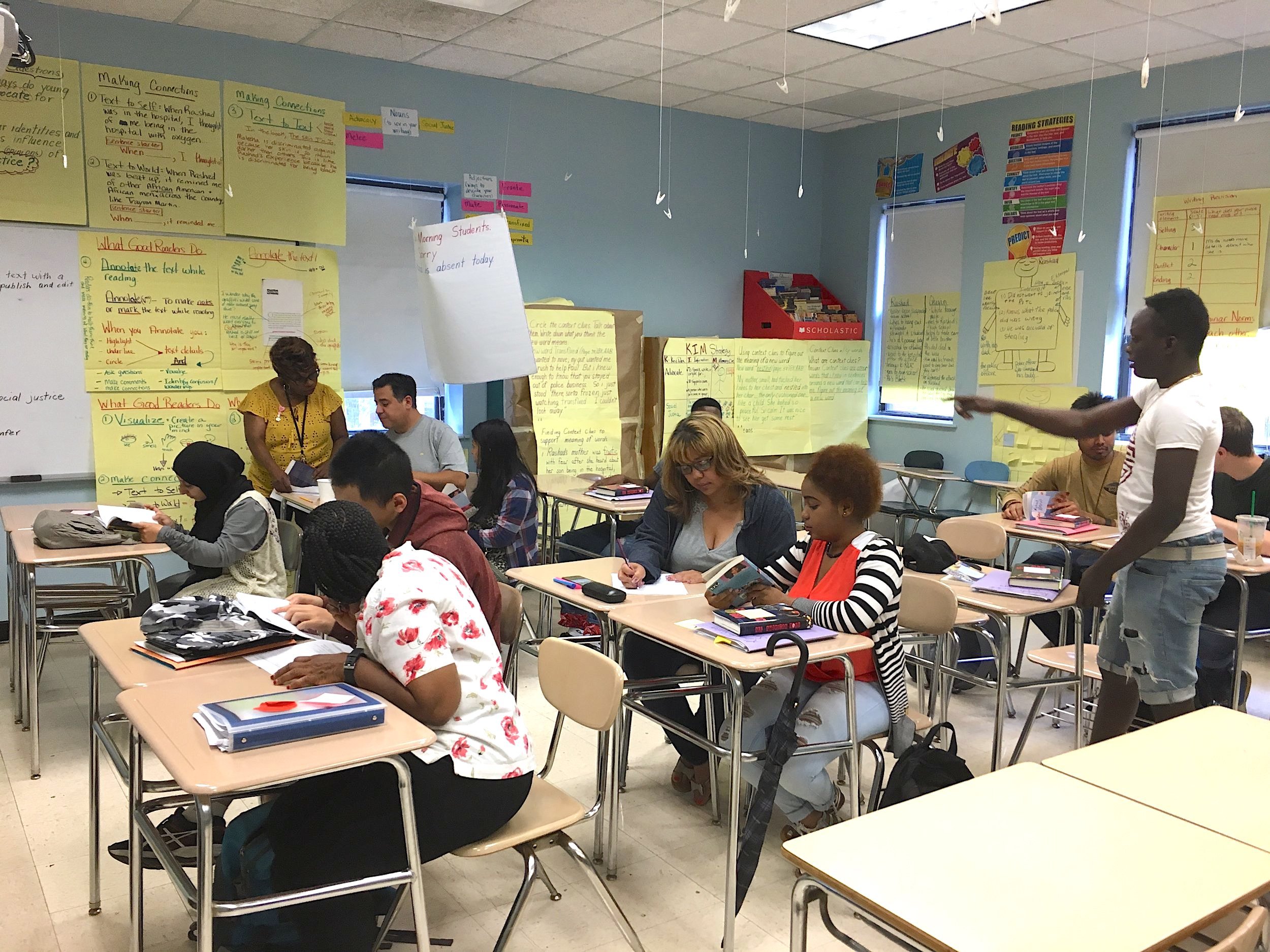
Teaching Emergent and Striving Adolescent Readers
This workshop will cover several strategies to help secondary students who are struggling with reading and/or who may be reluctant to reading. All approaches to reading will be covered from teaching phonics to fluency and comprehension work. Sample lessons will be modeled and provided.
-
Understanding by Design: Using Backwards Planning to Design our Curricula
Created by Wiggins and McTighe, Understanding by Design is a unique and comprehensive framework for planning our lessons, units, and year-long curricula. This hands-on workshop will help teachers, coaches, and administrators to develop a design process that focuses on students’ understanding of both the content and skills required by your school, district, and state. The planning process will be discussed in three stages: prioritizing and creating the necessary content and skill goals, developing authentic assessments (both informal and formal), and planning for engaging and meaningful activities that are both differentiated and culturally sustaining and responsive.
-

Writing Across the Content Areas
This workshop will focus on how teachers can integrate writing in meaningful and authentic ways throughout the curriculum in all the content areas. Not only will we discuss how to teach students to write, but how we can use writing to reinforce, extend, and assess students’ understanding of our content. Several genres of writing will be covered including informal, narrative, creative, expository, and persuasive. Finally, assessment, evaluation, and publishing opportunities for students will be examined.
-

Extending the Classroom to the Community: Students and Teachers Making a Difference
The purpose of this workshop is to provide teachers with resources and strategies to connect their classrooms to the community through social justice activities and projects. Content area teachers—including English, science, math, foreign language, and social studies—will learn how they can empower students by helping them to see they can make a difference within their communities.
Let’s connect.
Interested in working together? Contact Jody here or email her at jody.polleck@gmail.com


